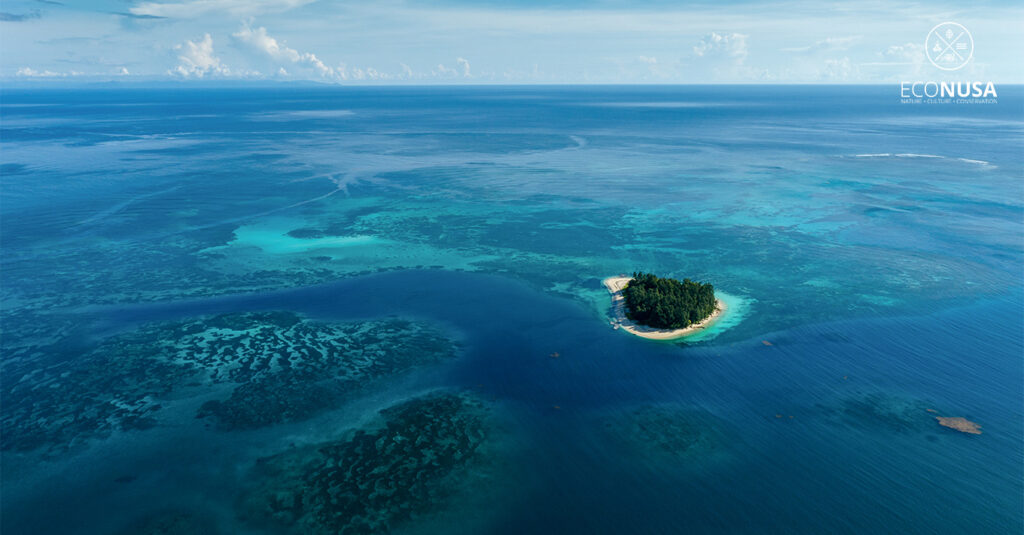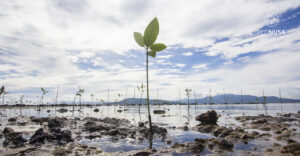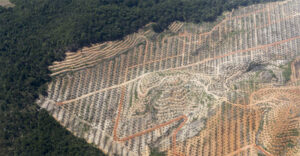
Sapardi Djoko Damono might have never thought that one of his poems would come true. One day in 1989, academician cum litterateur wrote a melancholic poem entitled “Rain in June”. Sapardi uses “Rain in June” metaphorically to illustrate an unconvinced love, offering, sacrifice, and wait in silence contemplating introvert longing.
Rain in June touched the readers’ heart. Sapardi personifies rain in June to tell a patient love within secret longing. Rain in June has never come, and so has the longing which ends in reticence.
Few years went by when the poem was written in 2022 rain in June has been poured. It came not as a poem, but the real downpour. Rain in June has lost its magic despite its fascination upon serious reading.
Read also: Our New Dream for Democracy and Ecology
Pour in June is abnormal phenomenon. Dry season should have come in June and wet season reached the peak in December. However, rain is coming in June in 2022. The phenomenon has never happened before. It should be conceded that carbon emission rise, degraded forests and oceans ecosystems, excessive nature exploitation contribute to the climate anomaly. One of the consequences is that dry season comes late from it used to be.
The Meteorology, Climatology, and Geophysics Agency (BMKG) recorded that dry season in 2021 started in May and June. As to BMKG, if compared to the average in 30 years, or in 1981-2010, the beginning of dry season in 2021 in most regions in Indonesia has been later than usual.
Indonesia has 342 season zones (ZOM). In 2020, dry season came in April on 17 percent of ZOM. Some 33.3 percent of ZOM got the dry season in May, and the other 27.5 percent in June.
Read also: Youth Involvement in Climate Crisis Imperative
The temperature of sea surface in Indonesian water continues to be warm following the global warming trend which supplies more evaporation so as to trigger more intensive cloud and rain. “It could affect the mounting risk of hydrometeorology disaster in Indonesia,” said Urip Haryoko, BMKG’s Climatology Deputy to Kompas.
The occurring La Nina phenomenon has increased the rain intensity in Indonesia. Several climate study institutions predicted that La Nina would last up to yearend. If it happens, Pacific Ocean is on three consecutive years of La Nina phase. It is a rare phenomenon.
The Climate Expert of the National Innovation and Research Agency (BRIN) and IPCC’s Working Group 1 Deputy, Edvin Aldrian, said that ongoing La Nina phenomenon in the past three years is temporary. “Indeed, there are some weather anomalies, including Seroja Cyclone, despite the fact that it is too early to conclude that global warming has changed climate regime,” said Edvin.
Read also: Climate Crsis Threatens Indonesian Fishermen’s Welfare
The study of University of New South Wales in the Nature Climate Change journals gave different analysis. Globally, climate has changed. According to the researchers, La Nina will happen frequently. This is due to the global warming that has melted ice in south and north poles. In the last 20 years, 5 trillion of ice in Greenland has been melted. Ocean anatomy in the world has also changed.
When June brings caution on the condition of our ‘home’, June is also deemed a special month if compared to the other months. On the sixth month, there are some commemorations to note, namely Pancasila Day on June 1, World Environment Day on June 5, World Ocean Day on June 8, and Coral Triangle Day on June 9.
Back to the past 50 years, on June 5, 1972, the world leaders sat together to discuss on raising awareness on environment. To celebrate the remembrance, the United Nations decided to use the same theme, Only One Earth, as that of in 50 years ago.
Read also: Embracing Youth’s Involvement during Indonesia’s Political Year
In addition to the environment day, there was also Agrarian Reform Task Force (GTRA) Summit 2022 held in Wakatobi Regency, Southeast Sulawesi. On the opening, President Joko Widodo highlighted the synergy among local and central governments to resolve tenurial conflict in the society. According to Jokowi, tenurial conflict is not a meager problem due to the massive social and economic impacts.
The aforementioned commemorations also remind us of the nature that has given us warning. It includes abnormal rain in June, agrarian conflict, marine, and forestry problems. All has addressed the messages that there are still much homework to resolve concerning our nature, forest, and ocean with their lingering threats.
The condition reminds us on how Pancasila works. Not only giving a day off to workers, but Pancasila Day could serve as a reflection momentum. Pancasila has taught us on the relationship among God, nature, and human. Gad has created the universe majestically to help earthlings. it is no wonder that the creation should be well nurtured.
Editor: Leo Wahyudi







